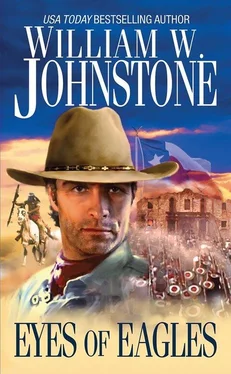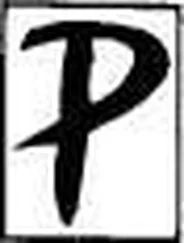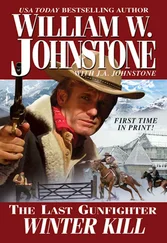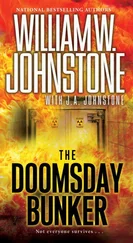An unshaven and loutish-looking man knelt down beside the man on the dirty floor. “You’ve killed him!” he said.
Jamie shrugged his heavy shoulders in complete indifference. “He threatened me,” was all he had to say.
“Do you know who this is?” the kneeling man asked.
“No, and I don’t care,” Jamie replied, taking another small sip of whiskey.
“This here’s Andy Saxon.”
“Am I supposed to be impressed?”
The man rose to his boots and slowly made his way to the door. “You’re a dead man, Jamie MacCallister,” he said. “Andy’s kin will track you to hell for this.”
Jamie turned to face the man. “That’s been tried by better men than that scum on the floor. They’re dead and I’m still here.”
The man turned and ran from the saloon. He jumped into the saddle of a horse tied at the hitchrail and galloped off.
Bowie tossed some coins on the planks. “The service was lousy, the whiskey raw, and the clientele surly. But the show was excellent. Let’s go, boys. We have a meeting to attend.”
“What about that there feller on the floor?” the counterman cried.
“The way I see it,” Bowie said, “you have two options. You can leave him there until he petrifies, and then prop him in a corner as a conversation piece. Or you can bury him. My suggestion is the latter. In this climate he’s going to get very rank, very quickly.”
Bowie, Bonham, and Jamie walked out.
Twenty-five
Bowie studied Jamie as they walked. He could detect no change in the man’s demeanor. Jamie had just stretched a man out dead on the floor, either with a broken neck or a broken skull, and he had not changed expression yet. Fontaine had told Bowie that Jamie was very bright, and Bowie had realized almost instantly that he certainly was not dealing with some sort of dullard. Then he had to suppress a chuckle. When had he ever been terribly overcome with grief after a killing?
Now he knew why he had taken such an immediate cotton to the lad — they were both as much alike as two peas in a pod.
At the meeting, Fontaine and Smith were uncommonly blunt. “War is looming on the horizon, Jamie. I would guess no more than a year away. We need to know exactly where you stand.”
“I stand for Texas independence,” Jamie said without hesitation. “I thought I had made that clear.”
Fontaine nodded his head, as did Smith. “This is something we’re asking of all our people, Jamie. You have not been singled out for questioning.”
“You have your answer,” Bowie said shortly. “Now, what about Santa Anna?”
“Santa Anna is no friend of ours,” Fontaine said. “We were all wrong about him.”
They certainly were. By now it was clear that Santa Anna was a tyrant. He was rapidly becoming a dictator, with the Mexican congress snugly in his pocket. Santa Anna had made it abundantly clear that under no circumstances was Texas to be free of Mexico’s control.
But Santa Anna had made a few other mistakes along the way. One was allowing land to be more easily acquired, and two was modification of the laws allowing new settlers to come in, and come in they did, by the thousands.
Austin had smuggled a letter out of Mexico, the contents of which, had they been seen by Santa Anna, would have put Austin up in front of a firing squad. Austin had some pretty strong things to say about Santa Anna, and called for war.
“Our army?” Jamie questioned.
Smith smiled. “Loose and highly disorganized. It’s far too soon to call openly for volunteers. But they will be there when the time comes.”
“And I am to do what?” Jamie asked.
“Wait,” Bowie told him. “That’s all any of us can do.”
After Jamie had excused himself, saying he had some business to attend to, Fontaine looked at Bowie. “What do you think?”
“He’s solid as an oak.”
“Tell us what happened across the street,” Smith urged.
“He killed a man with one blow from his fist,” Bowie said simply. “Dispatching him without a change of expression.”
“Do you think he’s a killer without conscience?” Fontaine asked.
Bowie smiled. “No more than I am.”
* * *
Jamie rode toward the encampment of the Saxon gang with every intention of ending this years-long pursuit once and for all. But when he reached the camp, it was deserted. The coals were still hot and scraps of food and bits of ragged and discarded clothing were scattered about, but the Saxons and their followers were gone.
Jamie picked up their trail and found they had gone south for a few miles, then cut east toward the Sabine River. He followed the obvious trail for a few miles, then gave it up when it became clear the gang was quitting the hunt. For what reasons, Jamie did not have a clue.
“Good,” he muttered, and turned his horse’s head north, toward Kate and home.
Everyone was both surprised and pleased to see him return so soon. Kate had feared that he might be gone for weeks, or even months. And, secretly, she feared for her husband’s life, for she knew him better than anyone, and knew the chances he took. Hannah had explained the warrior’s way to her. And even though Jamie had spent only a few years with the Shawnees, the lessons he had learned there were burned deep within him, and they would remain there all his life.
So for nearly a year, the political struggling and rumors of war were forgotten by those in the Big Thicket as they concentrated on their own struggling to stay alive, work their fields, and raise their families. Jamie did not know why the Saxon Brothers had given up their hunt for him, but he felt sure that one day he would meet them and it would have to be settled.
In the world outside the Big Thicket, events were rushing toward war. Santa Anna had sent his brother-in-law, General Martin Perfecto do Cos, to Saltillo, with orders to get rid of the Federalist governor and his staff, who were openly opposed to Santa Anna’s dictatorial ways. War between the Texans and the forces of Santa Anna moved closer.
Sam Houston continued to tell his followers to stay calm. War was coming, but not just yet.
Over in San Felipe, a flamboyant young attorney, William Barret Travis had put together a small force of some twenty-five men. Hardly an army, but it was the beginning of one. Some say it was Travis and his little force, a few months later, who really fired the first shot of the revolution — but Texas was huge, and there were shots being fired all over the place, so no one is really sure.
Fontaine sent Bonham to fetch Jamie. Travis wanted to meet him. Jamie agreed, but could not understand why the special interest in him. There were hundreds of men who knew Texas better, so why him?
Bonham shrugged his shoulders. A few days later, at the rear of Smith’s store, Fontaine cleared it up. “Because you represent what Texas is all about, Jamie. It doesn’t make any difference whether you were born here, or not. At this point in time, most Texans have come in here from somewhere else. But you’re free, and you’re willing to die for that freedom. You’re a little bit wild, and you don’t give a tinker’s damn whether others approve of that, or not. You’re true to yourself and to your family. That’s Texas. You stand up for what you believe in, and if the law, or lack of it, can’t handle it, you will and to hell with those who don’t have the backbone to fight for what they believe in. That’s Texas, Jamie.” The government man smiled and called, “All right, Mr. Travis, please come in.”
Jamie Ian MacCallister and William Barret Travis shook hands and sized each other up. Jamie had heard that Jim Bowie and Travis did not really like one another, and Jamie could see why.
As they drank coffee and talked, Jamie could see that the two men were opposites. Bowie was wild and unruly and oftentimes quite unpredictable, while Travis was outwardly cold and calculating. But Travis was also hotheaded and did not like his orders questioned, and he was the sort who felt that his way was the only way. Regardless of that, Jamie and Travis, in only a few short hours that day, grew to like and respect each other. And Jamie could sense that Travis, like Bowie, was fearless. When everybody involved finally made their declaration and committed, it was going to be a matter of wills as to who would actually lead the Texas Army of Independence, Travis or Bowie.
Читать дальше









